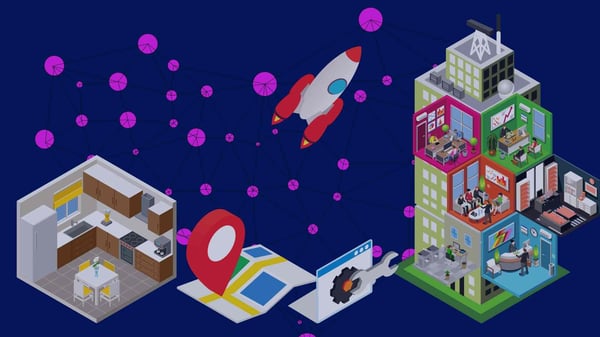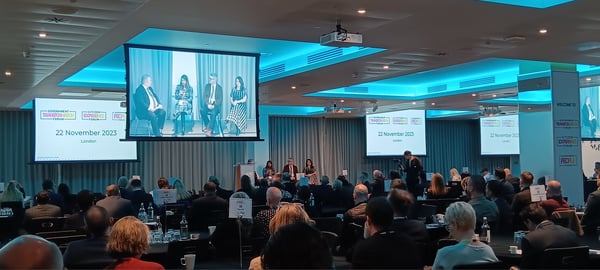Building on the wins of the pandemic through data
If there was a clear lesson from the pandemic for government, it is that radical organisational change is not only possible but also necessary to deliver the best results for citizens.
The levels of unprecedented Digital Transformation and collaboration seen throughout the Covid-19 crisis were an eye-opening experience for many leaders in the Civil Service who had long been working towards change.
For Mike Hoare, Chief Digital Officer (CDO) for Public Sector at Fujitsu UK, the sentiment at the recent Government Transformation Summit was that for government organisations to continue moving forward and foster an innovation environment, a cultural shift from within is essential.
 During his conversations Hoare spoke with government executives who think that technology will be an essential part of this continuing cultural change - not as a panacea but as an enabler.
During his conversations Hoare spoke with government executives who think that technology will be an essential part of this continuing cultural change - not as a panacea but as an enabler.
“At the core of this change” Hoare says, “is understanding not just the business processes but the data needed to achieve the outcomes for a more citizen-centric experience. Data interoperability and integration, and sharing it across government is by far the biggest challenge.”
While departments might start with the Government Data Quality Framework or the Digital Data and Technology Playbook, it’s fundamental to have a solid data strategy that focuses on a data culture so they can understand and take control of it to make more informed decisions.
“Data quality is a massive issue. Anecdotally, two thirds of a Data Analyst's time is spent ensuring that it is fit for purpose. Maintaining data is time consuming, expensive and nobody wants to do it. People rely too much on technology without understanding the real value of their data and what’s it’s worth. Knowing your data is valuable is not the same as knowing the value of your data. Departments need to ask what they would like to do with their data today but can’t? But also, what are they doing with their data that they’d like to stop?”
One of the ways to bring data strategies alive is by creating Digital Twins - the focus of the National Digital Twin programme. But instead of modelling physical assets, Digital Twins can also be used by departments or agencies to model processes and systems to create ‘sustainable data fabrics’ that can enhance data interoperability.
Using Digital Twins for government services can help break down silos and gain a greater understanding of data to unleash new opportunities and deliver the next generation of data centric, services.
For government to be able to provide a seamless citizen experience like banking or e-commerce, Hoare also thinks that a central trust model will be indispensable. This would allow citizens to share data openly and securely with different government organisations seamlessly and without the need to start from scratch with each interaction.
That trust relationship was best demonstrated during the development of the NHS app, which eventually provided the base for the vaccination roll-out.
“Sharing my data openly with government departments means that I gain a much richer and better experience with those services because they can tell me, based on my situation and data already shared, what options are available for me,” Hoare adds.
“If we collaborate from a government and IT provider perspective, we can keep that transformation seen during the pandemic moving forward.”





